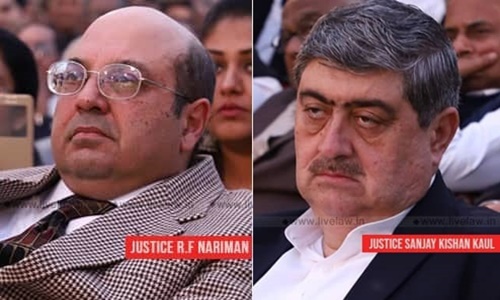Use Of Unconstitutional '66A': SC Directs To Provide Copies Of Shreya Singhal Judgment To All Courts And DGPs
Ashok Kini
16 Feb 2019 8:31 PM IST

"Copies of this Court's judgment in 'Shreya Singhal v. Union of India' [(2015) 5 SCC 1] will be made available by every High Court in this country to all the District Courts."
Next Story


